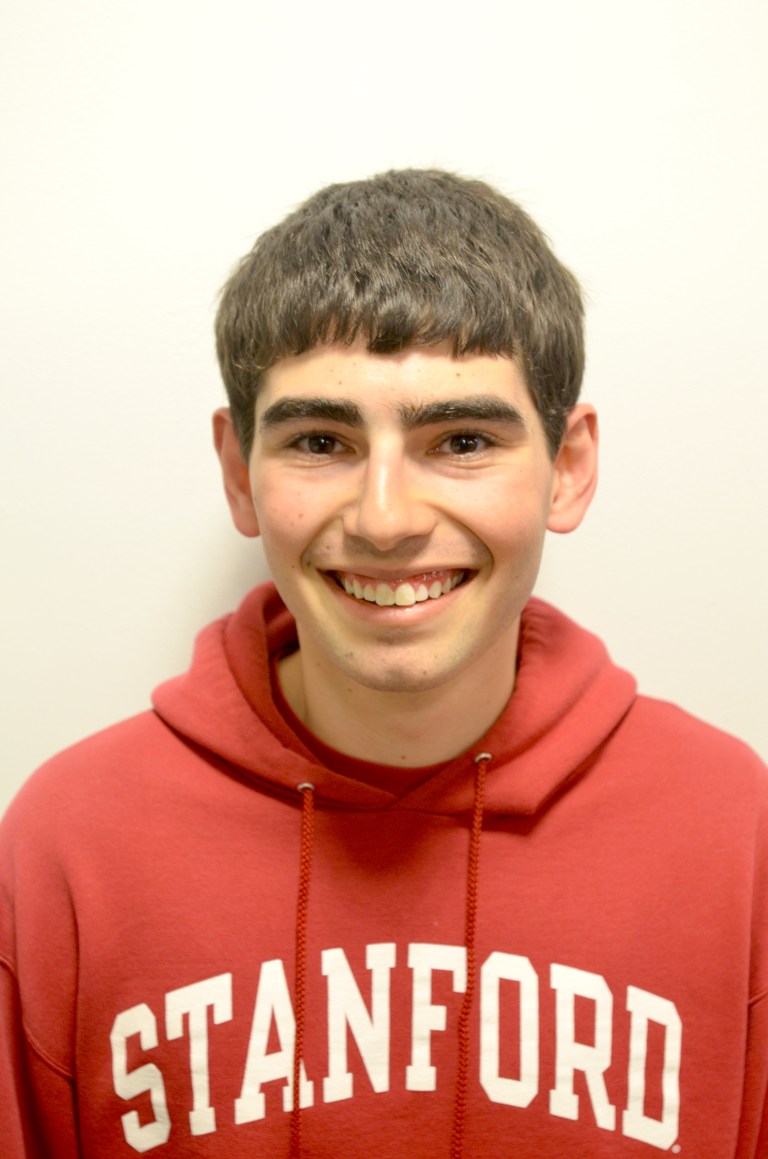The first time I watched Jason Collins ‘01 play basketball, I was four. Fifteen years later, I can’t say that I remember what his shot looked like, how quickly he hustled down the Maples Pavilion floor or whether I could tell the difference between him and his twin brother Jarron Collins ‘01.
But I absolutely remember that, back in 1997, I couldn’t care less about Collins’ sexual orientation.
So when Collins announced in a Monday Sports Illustrated article that he was gay, becoming the first athlete in major American sports history — that’s the MLB, NFL, NBA and NHL — to come out while he was still a player, I felt myself asking: Why should I care now?
Of course, we’re not all toddlers. People have their prejudices; some fans carry those prejudices with them into arenas and ballparks. And, in my view, that’s their loss.
Here’s why: I’ve always thought that the true joy in being a sports fan is something that is born early on. It’s about knowing the players by name, getting lost in the flow of the game, learning which opposing teams to hate — the sorts of things that a four-year-old can do.
When you get older, all of that is augmented by analyzing the action, understanding the full course of a team’s season and learning about what players are like off the court. But none of those additions are at the heart of what makes a sporting event fun. As much as possible, I try to be a four-year-old in the stands and a 19-year-old on the car ride home. That kind of sporting experience is blind to the X’s and O’s, blind to the bigger picture and blind to prejudice. So if you go to a game looking to heckle Collins, as he says he expects some fans to do, you’re the one missing out.
But even for those of us without those prejudices, it’s also a step in the wrong direction to see Collins as any different than the next NBA star or any different than we saw him on Sunday evening. Here’s a player who has dumped his heart and soul into his sport at the professional level for over a decade, yet regardless, today’s announcement is bound to define his legacy. Barring some huge strides late in his career, in 25 years Collins will be known simply as the first active American pro sports player to come out.
It took courage to do what Collins did on Monday, and his achievement should be recognized. But it’s a crime to reduce his other achievements in life — and there are many: graduating from Stanford, playing pro basketball for so long, reaching nine NBA postseasons — to his acknowledgement of an identity that’s a bit different than we’re used to out of a professional athlete.
Stanford Athletics Director Bernard Muir said it best in a press release this morning: “On behalf of a diverse athletic community, I hope that we progress to the point in society where truthful moments like these are no longer newsworthy.” He’s right that we’re not at that point yet, when Collins’ announcement is front-page news for ESPN, the New York Times and everyone in between.
In the near future, a whole bunch of cameras will be turned in Collins’ direction — disproportionally many for a role player who played 10 minutes per game this season. The issue of LGBT tolerance in major sports will get another serious look. (The Daily, at least, is working on a feature.) Maybe a few other players will follow Collins’ example. And judging by their initial reactions on Monday morning, Stanford students and alumni will once again take pride in the trails blazed by one of their own.
But Collins made a point of saying that he didn’t want his sexual orientation to define him. So the next time I turn on an NBA game — which, admittedly, is quite rare — and see Jason Collins, I’m going to try my hardest not to think of him as a pioneer or a national hero. In the years to come we’ll have the chance to reflect on the impact and bravery of his decision, but for now, I’m going to take Collins’ game at face value, just like he would want me to. I owe him that much because I do actually think of him as a pioneer and a national hero, and he deserves to be defined by the rest of his life.
That’s why, even in confronting a social issue that requires so much maturity out of all of us, the best thing we can do is act like a four-year-old.
Joseph Beyda, unfortunately, also throws a football like a four-year-old (on a good day). To share your support of Collins — or offer free throwing lessons — email Joseph at jbeyda ‘at’ stanford.edu and follow him on Twitter @DailyJBeyda.
